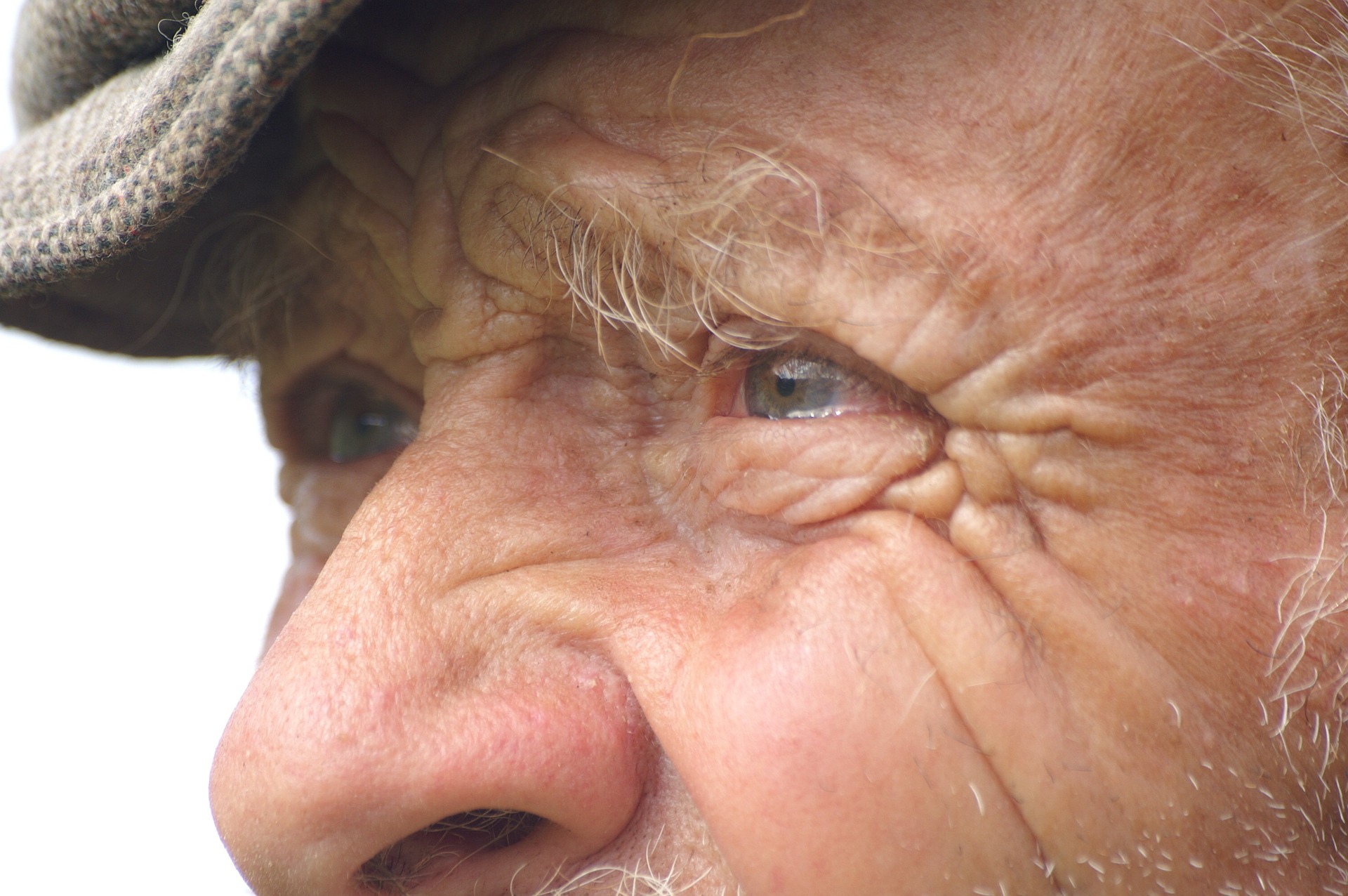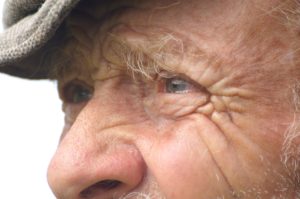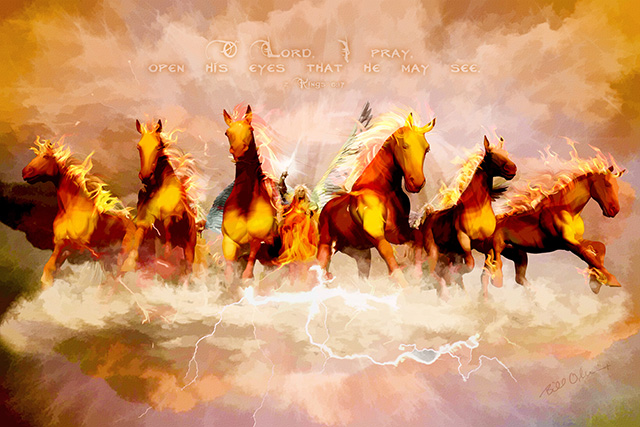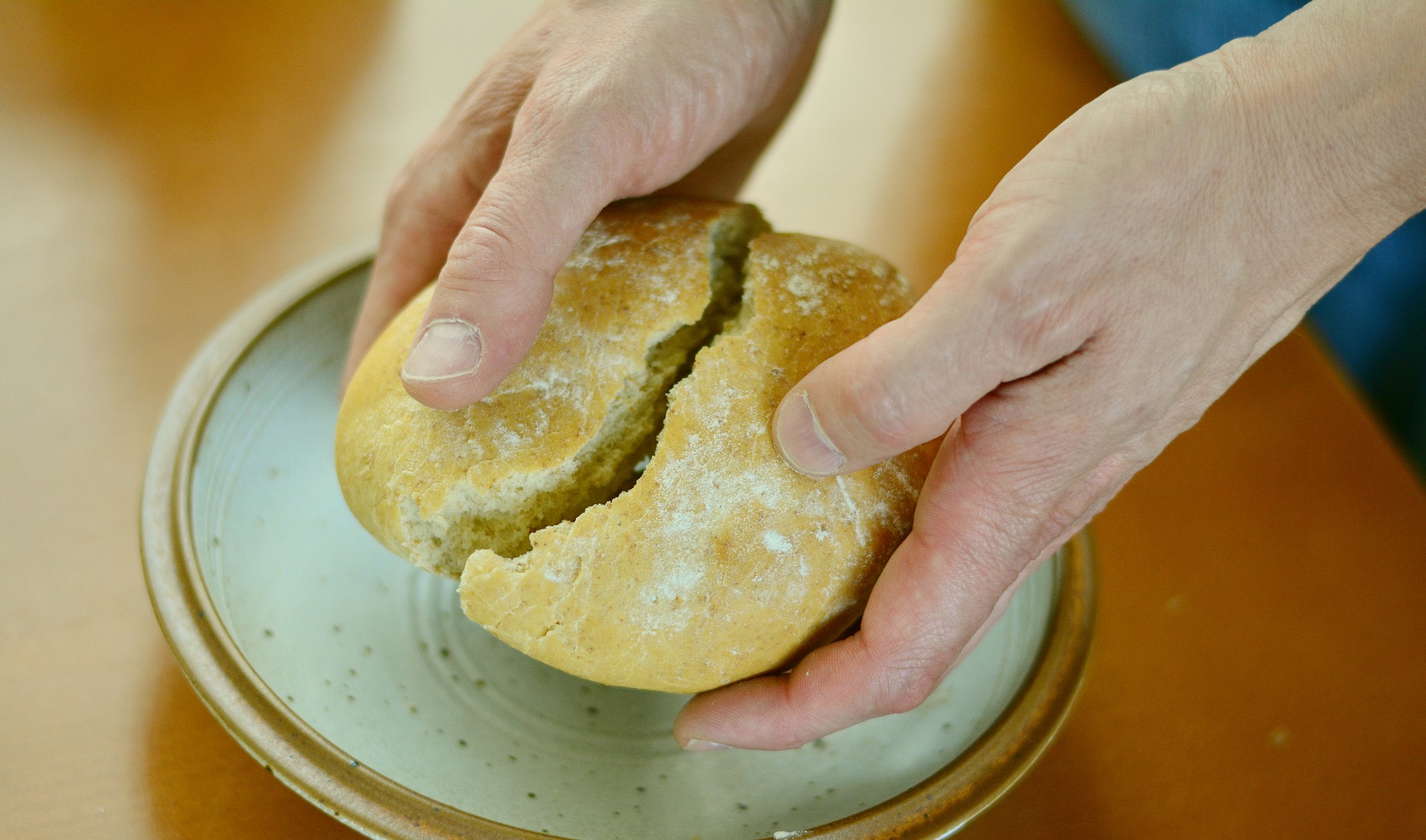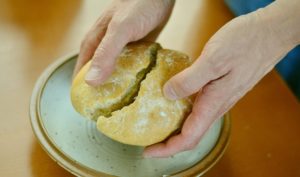Mark 6:49-51
“When they saw him walking on the lake, they thought he was a ghost. They cried out, because they all saw him and were terrified. Immediately he spoke to them and said, ‘Take courage! It is I. Don’t be afraid.’ Then he climbed into the boat with them, and the wind died down.”
Once, when I was a little girl, I woke up in the middle of the night and was terrified to find there was someone in my room. I was too scared to even cry out for help, and besides, if my mom were to come in this shadowy figure might hurt her. As I lay completely still and watched the intruder I wondered if he hadn’t fallen asleep. He was sitting very still in my chair. But I couldn’t see his eyes in the dark, and since I was also very still but very much awake, it stood to reason that we were just staring at each other. I’m not sure how much time passed or if I eventually dozed off, but as the early morning light began to filter through my window shades, I realized that I was alone in the room after all. A helium balloon that had started the night clinging to the ceiling in the opposite corner of the room had drifted and as it started to lose helium, it was hovering just above the chair. Add a few clothes and dolls carelessly left on the chair in just the right way and a frightening intruder was born. When I couldn’t see clearly, a cheerful balloon was transformed into the head of a creepy stranger.
A similar thing happened to some of Jesus’ friends once. They were in a boat in the dark and while they weren’t facing a dangerous storm, they were trying to row into a really strong headwind. They were working so hard but not getting very far. And on top of it all there’s a ghost-like figure approaching them on the water.
They blink and squint into the darkness, willing their eyes to see more clearly. No boat. It is definitely just the form of man. He’s getting closer. Without a boat to stand in, the only explanation they can grasp at is that there is an actual ghost coming toward them. Of course they were terrified!
Jesus reassures them that there’s nothing to fear. He identifies himself to them and joins them in the boat. On top of that, he takes care of that little wind problem they were having. So not only is the moment of fear over, but so is the struggle they were having without him. I’m not saying that they fully understood what had just happened, because I’m pretty sure they didn’t. But there was relief in their fearful hearts and in their aching shoulders that probably made understanding seem less important.
I’ve heard it said that while we’re all in the same stormy sea that is the covid-19 crisis, we’re not all in the same boat. It’s true that we’re all struggling against different winds. Some are grieving loved ones, while others are struggling to make ends meet after suddenly finding themselves out of work. Still others are finding themselves overworked as they care for patients or conduct research around the clock in an attempt to end the crisis. Graduates are grieving the celebrations that should have been and parents are struggling with the unexpected role of teacher. Whatever boat we’re in, our collective muscles are aching from rowing into the wind, and all the while there’s something terrifying out there that we can’t quite identify.
When John describes this night from his perspective (John 6:16-21), he says that after Jesus identified himself to them, “then they were willing to take him into the boat.” (John 6:21, emphasis added). Jesus didn’t force his way into the boat, but the struggle against the wind continued until they invited him into it.
I pray that, wherever you are reading this today, your eyes would be able to discern Jesus coming toward you, offering relief from fear and struggle. “Take courage! It is I. Don’t be afraid.” Whichever boat you find yourself in, know that Jesus sees you “straining at the oars” (Mark 6:48) and is ready to join you if you invite him into your boat.

Moment of Beauty
Enjoy natural beauty today. If you have access to a park or other natural area, try to make time to take a walk and focus on the sights and sounds of nature around you. If you aren’t able to get out into nature today, take a few minutes to enjoy this peaceful stream. Take a few deep breaths and enjoy the calm waters.

